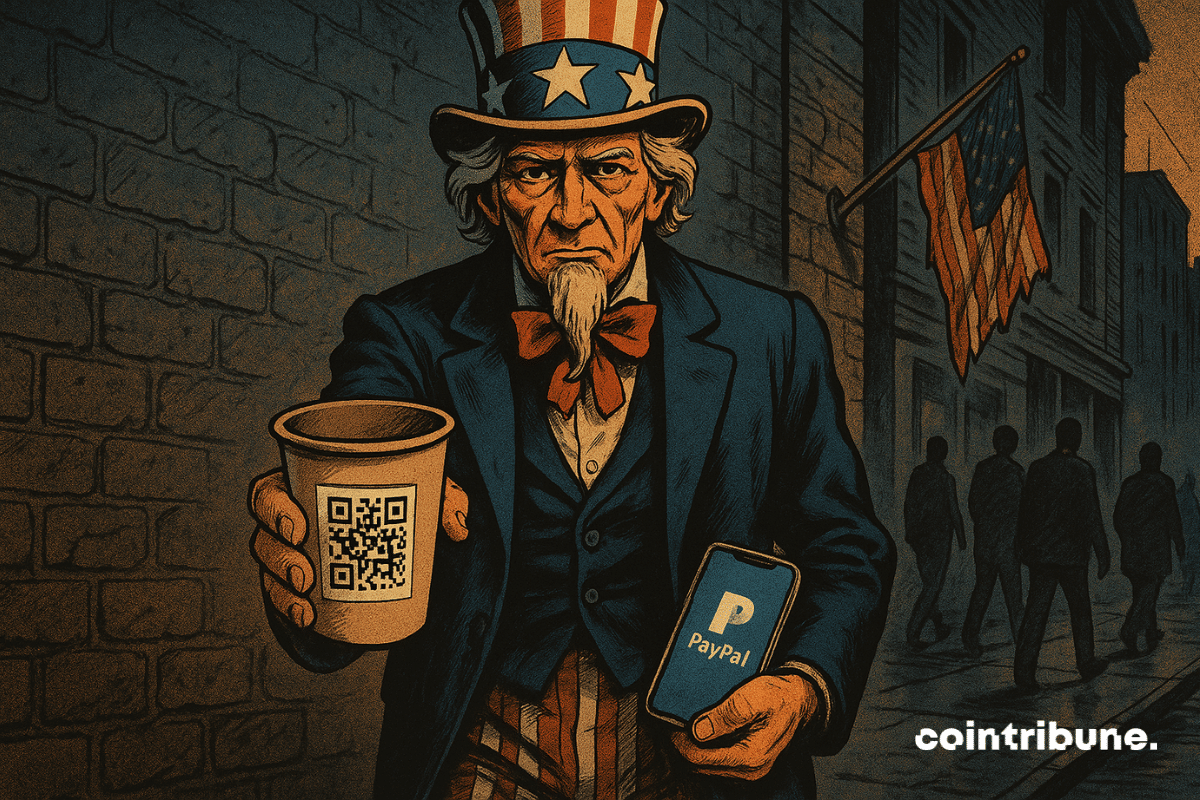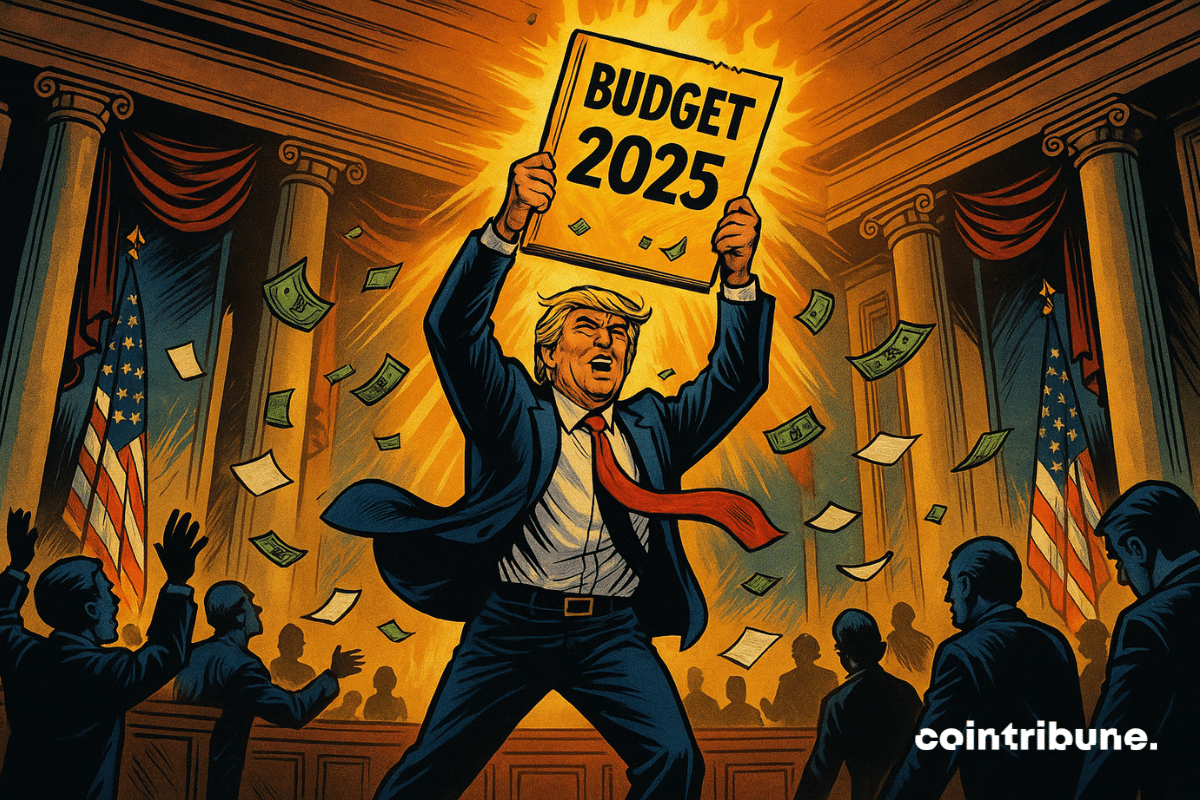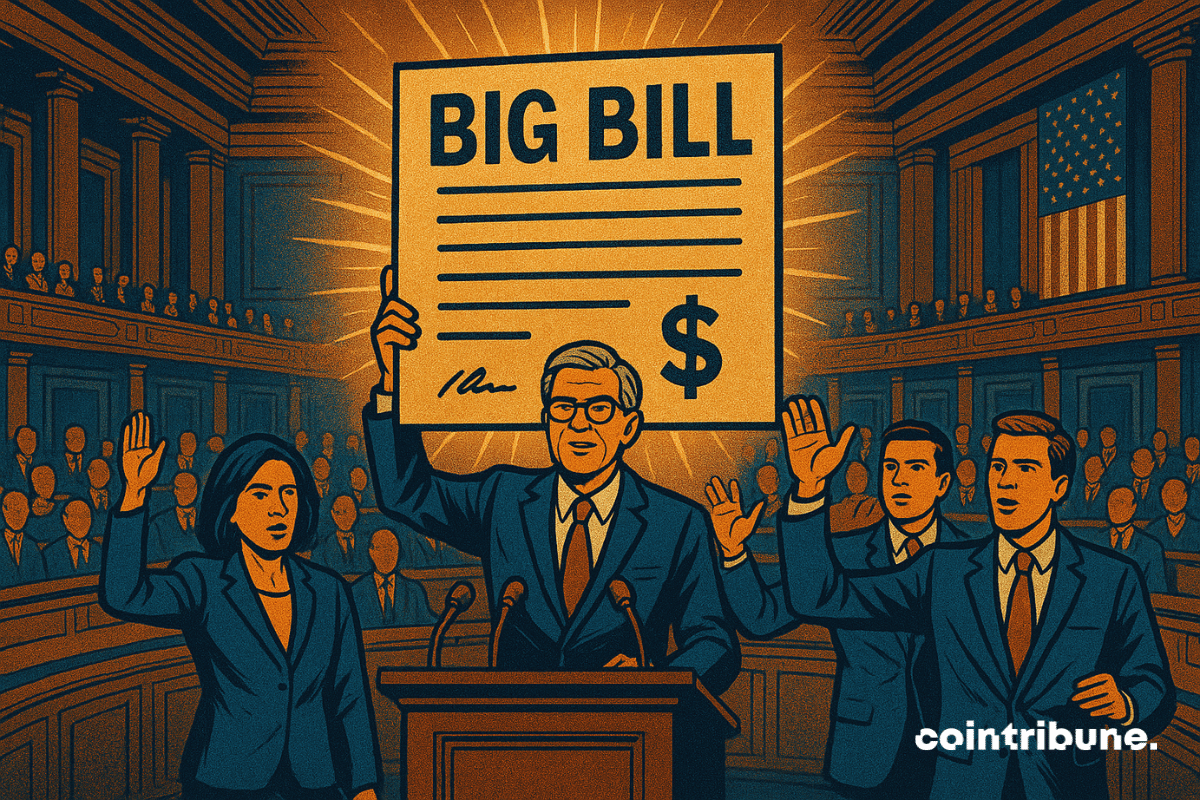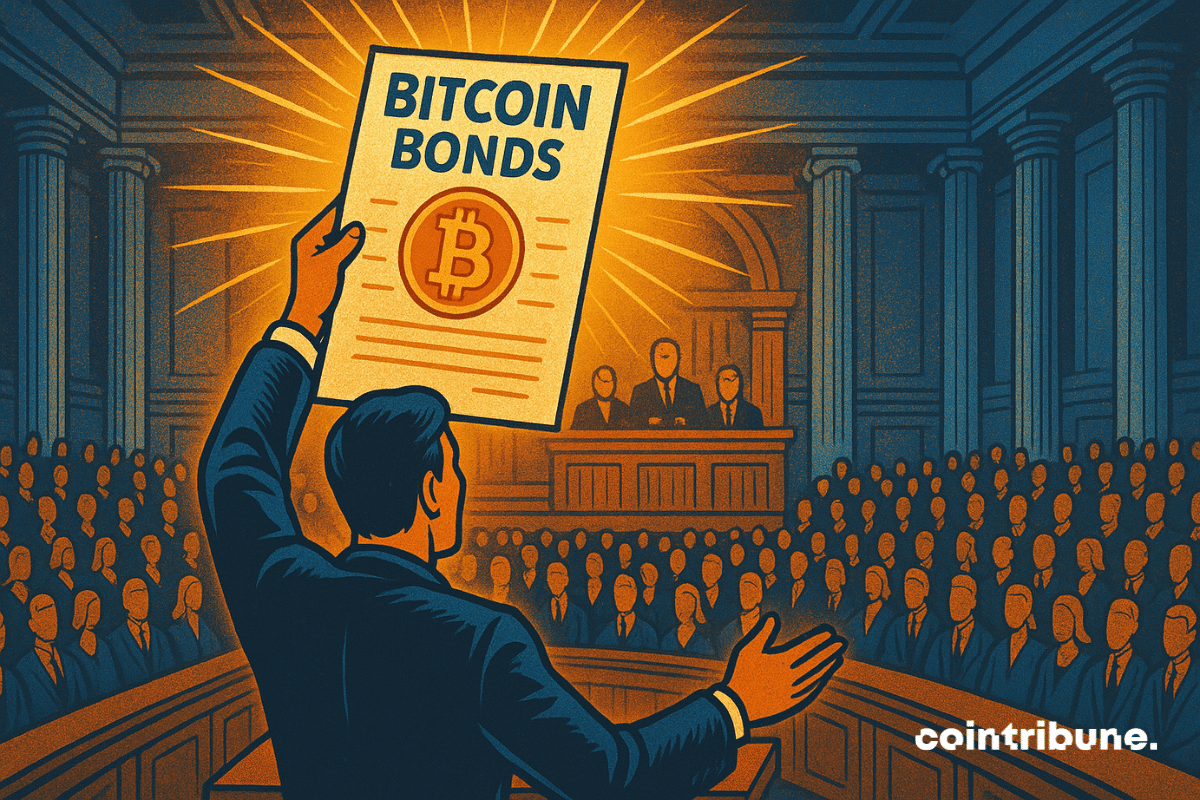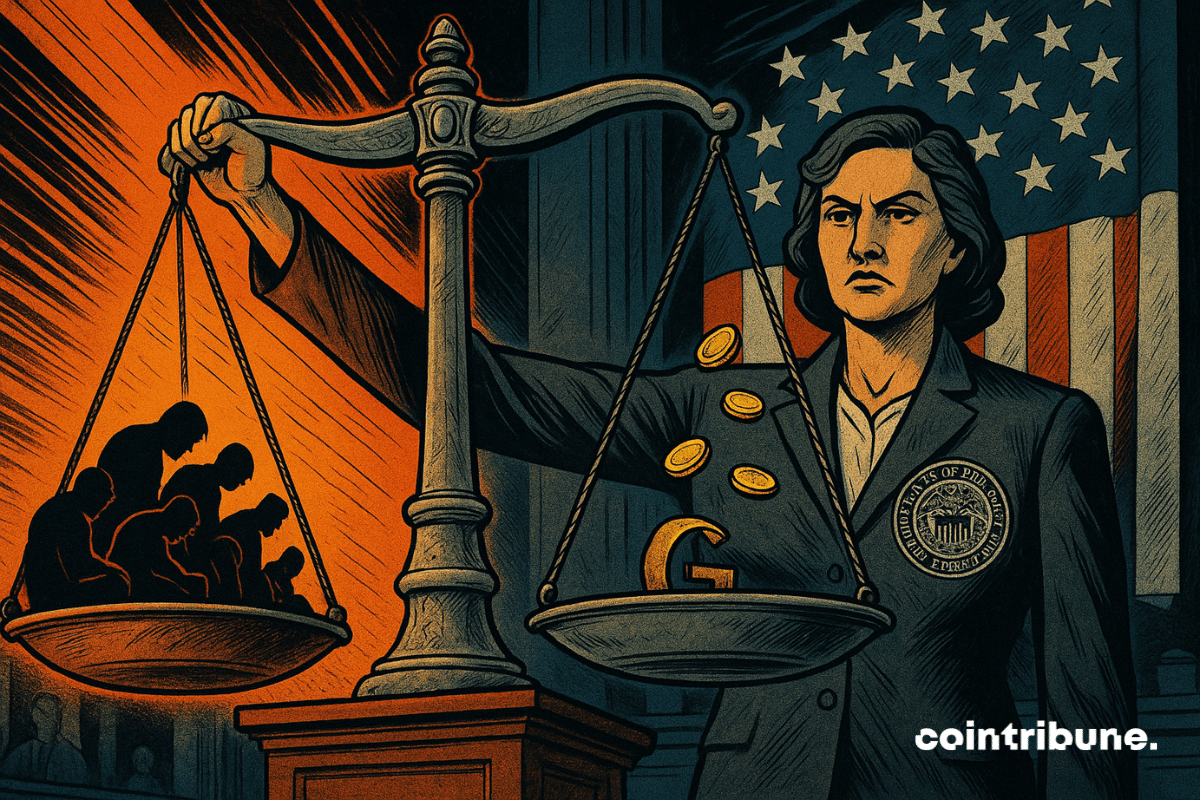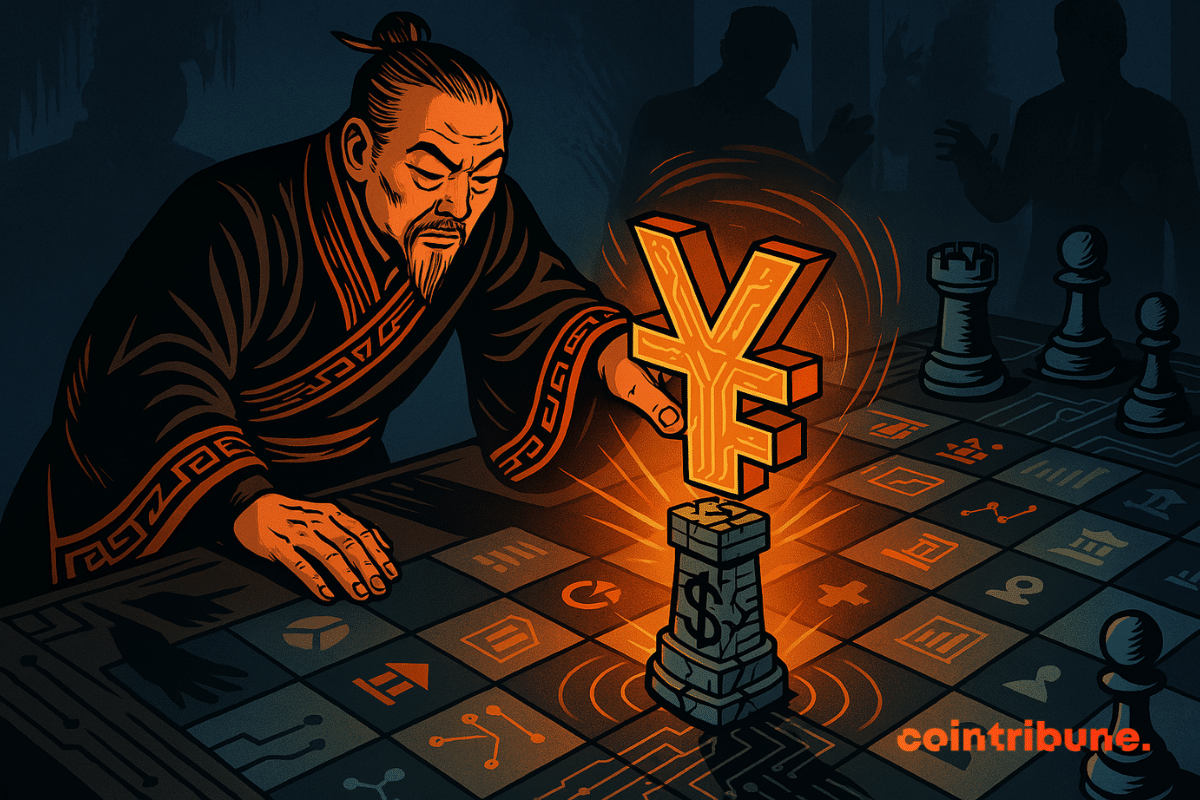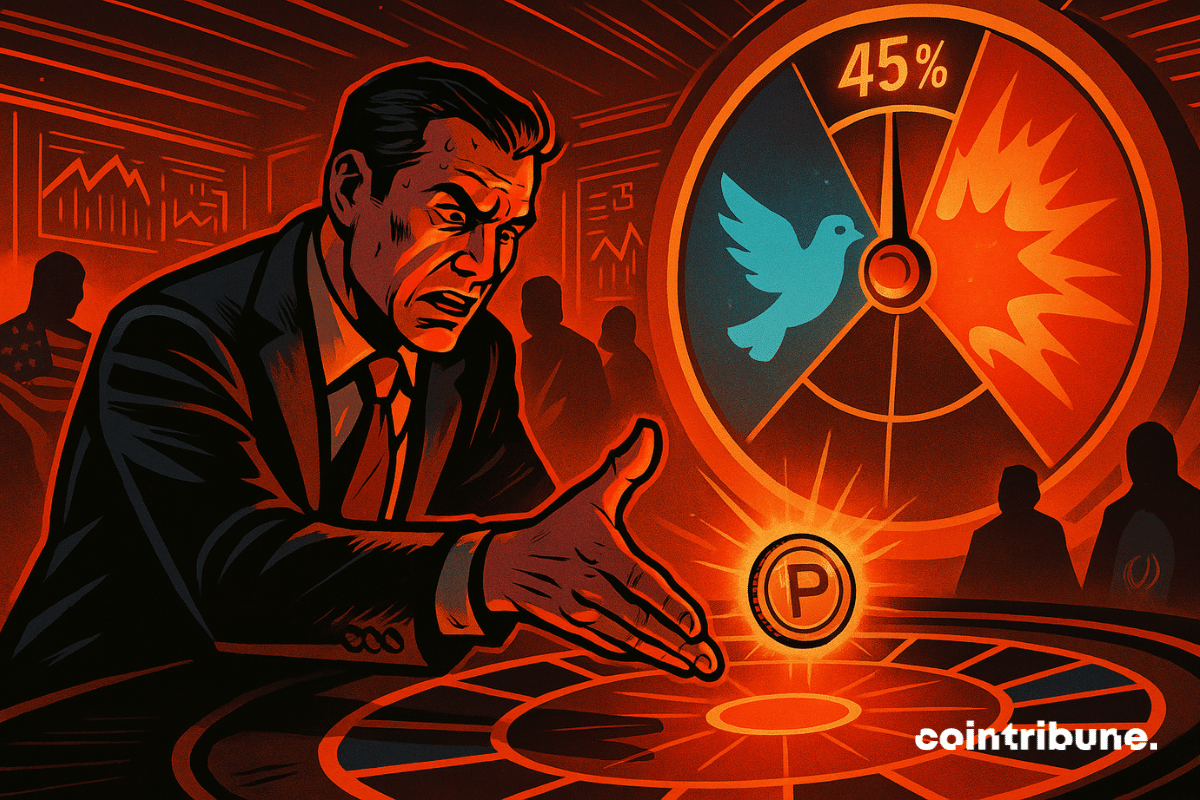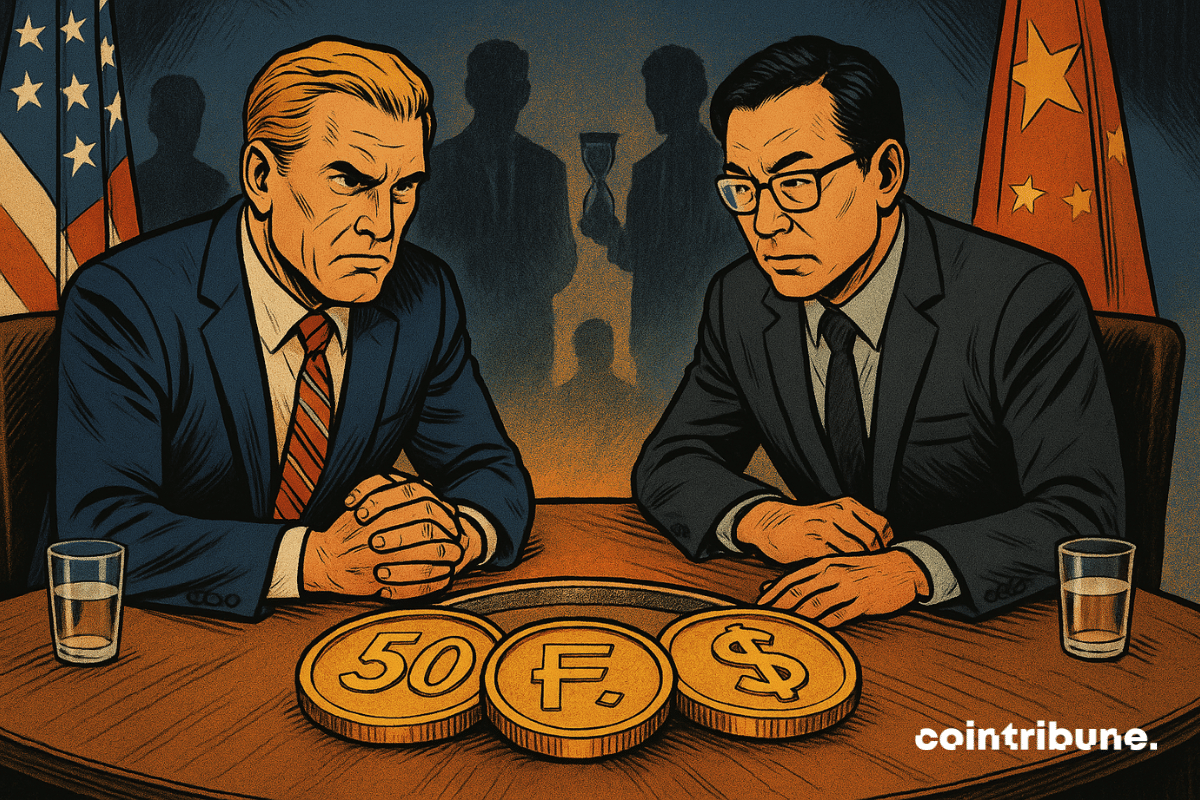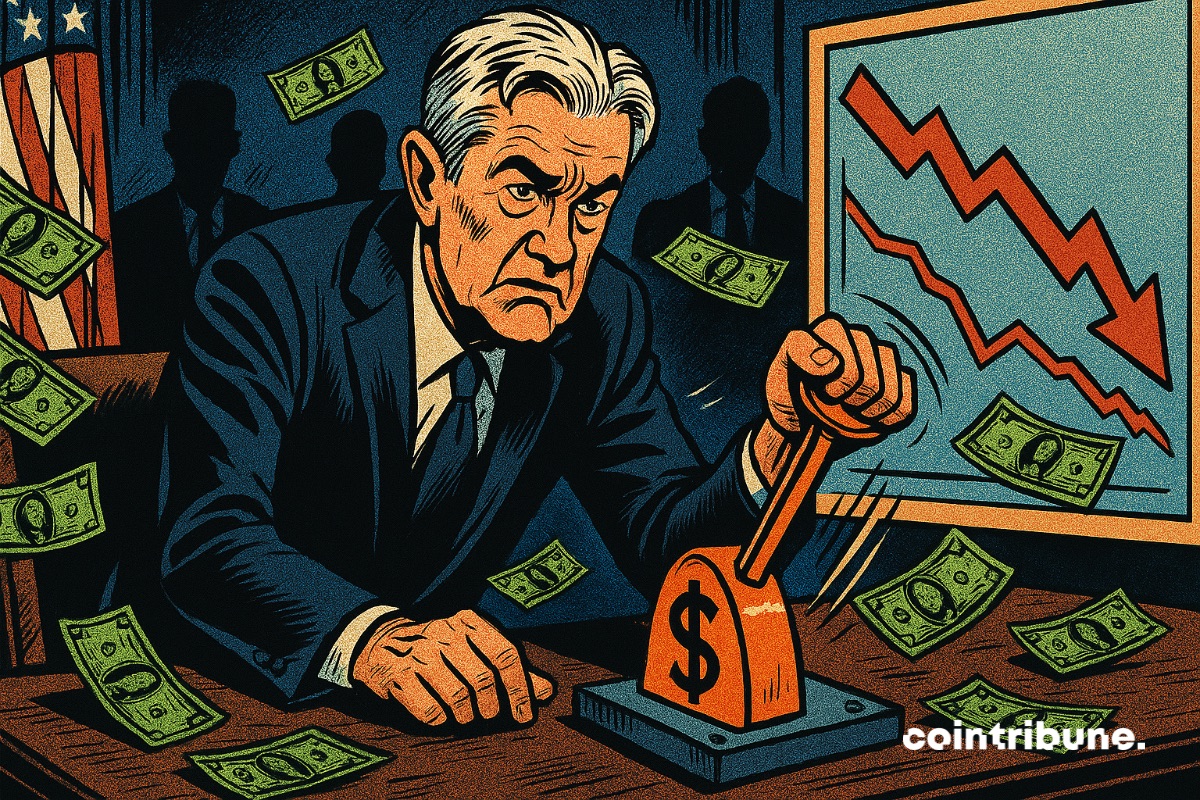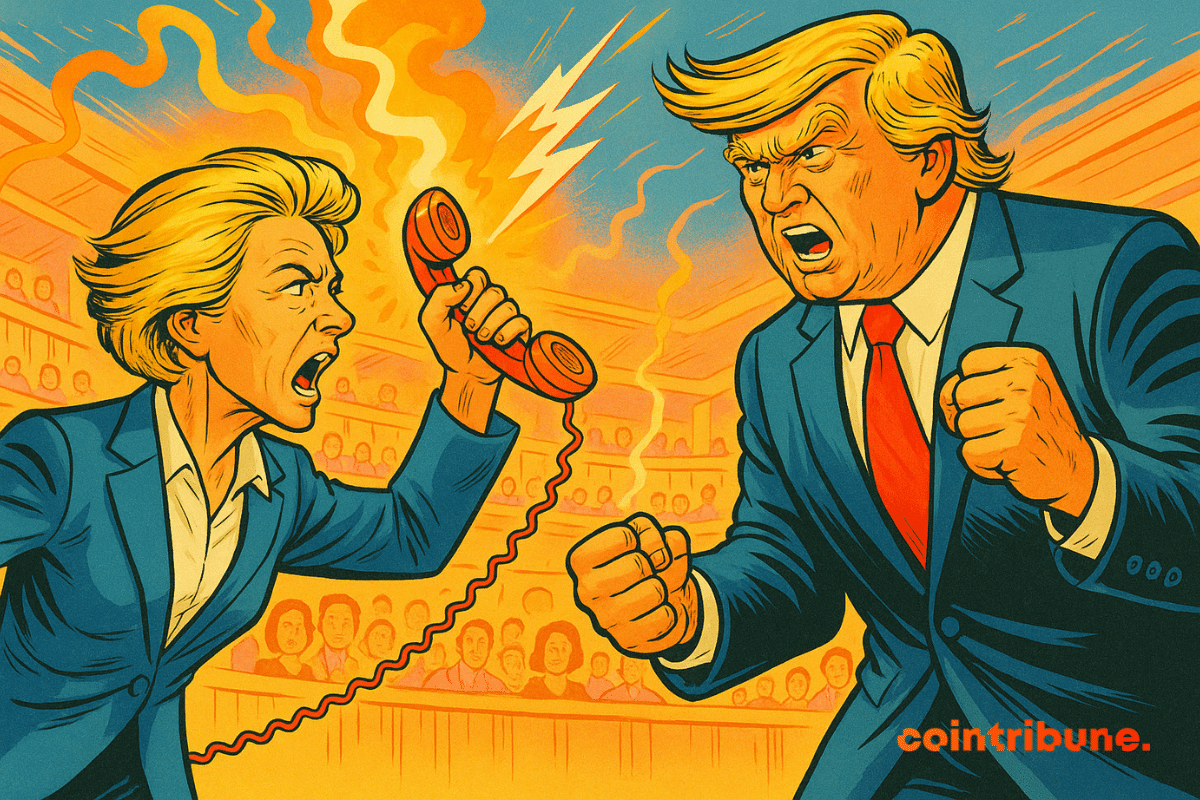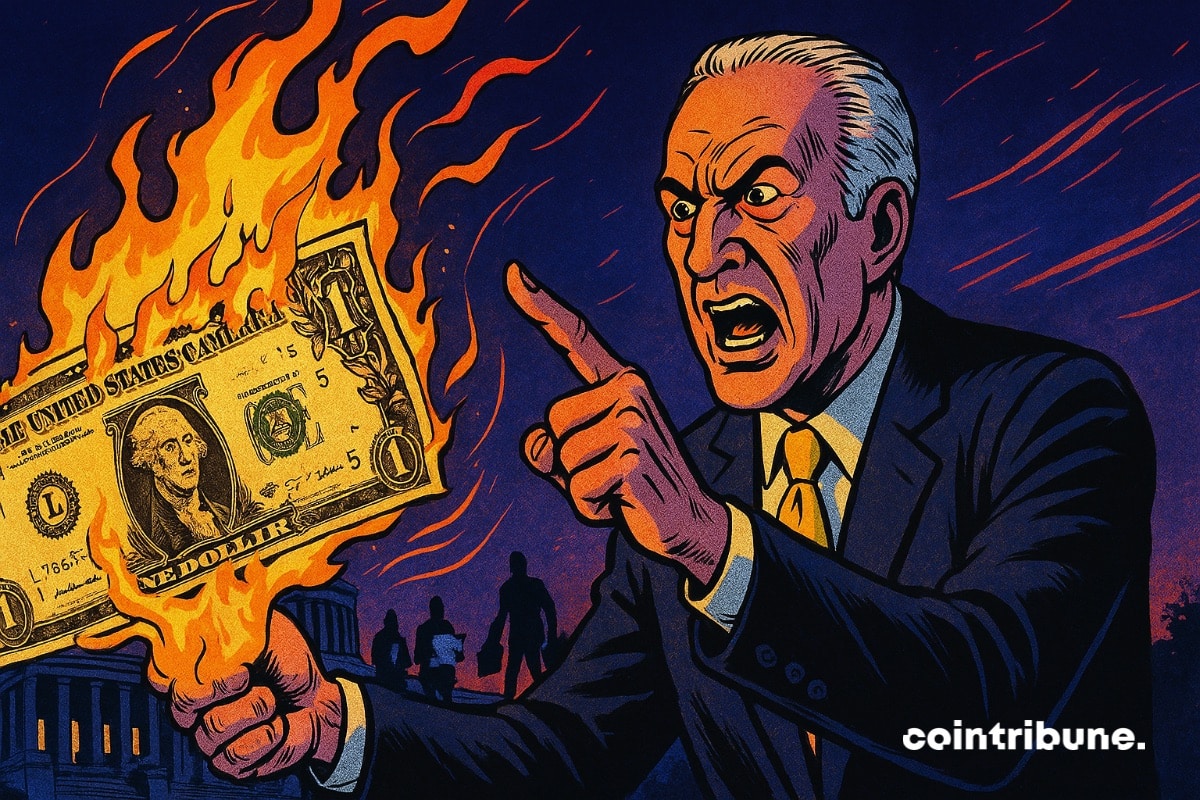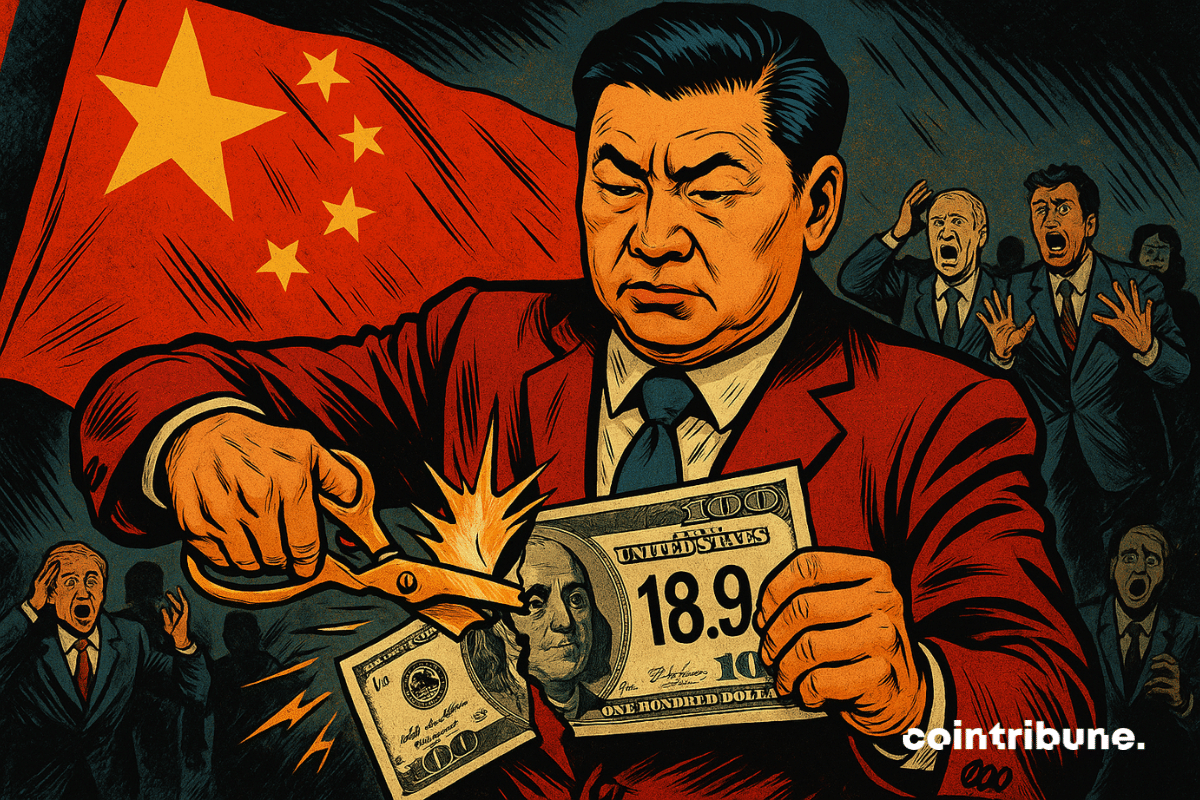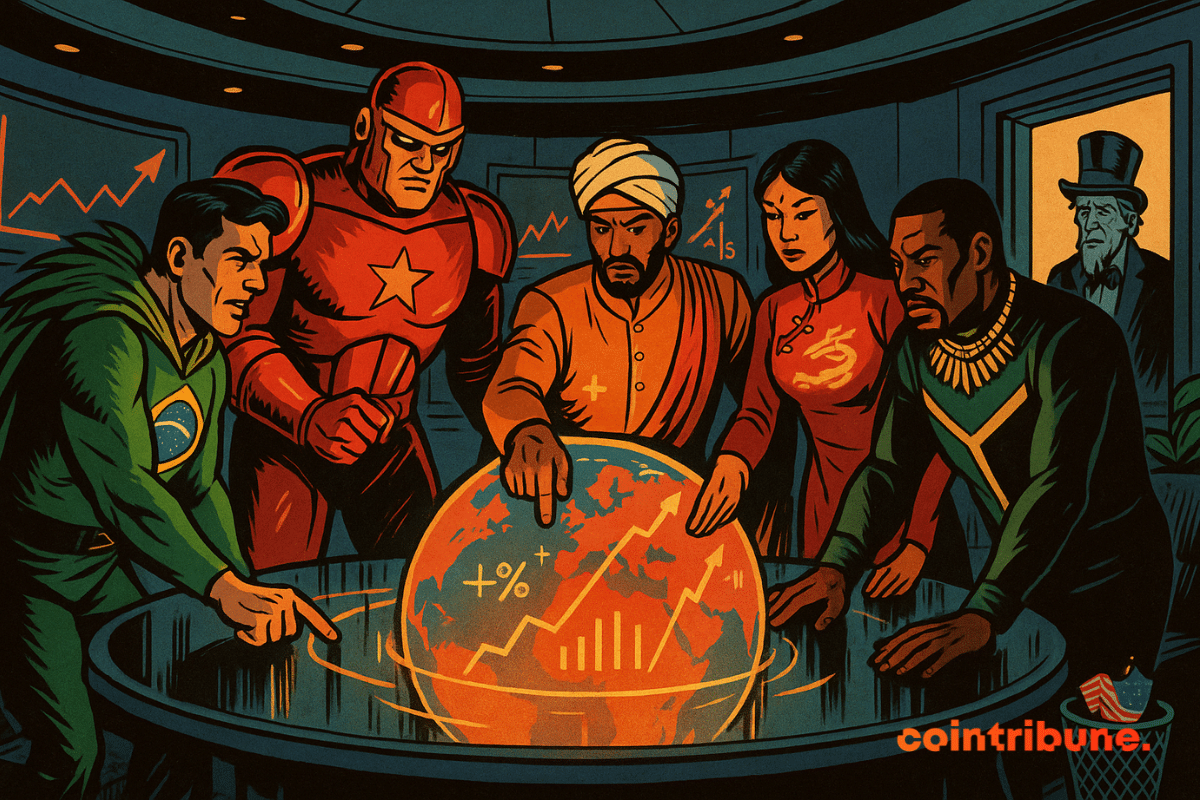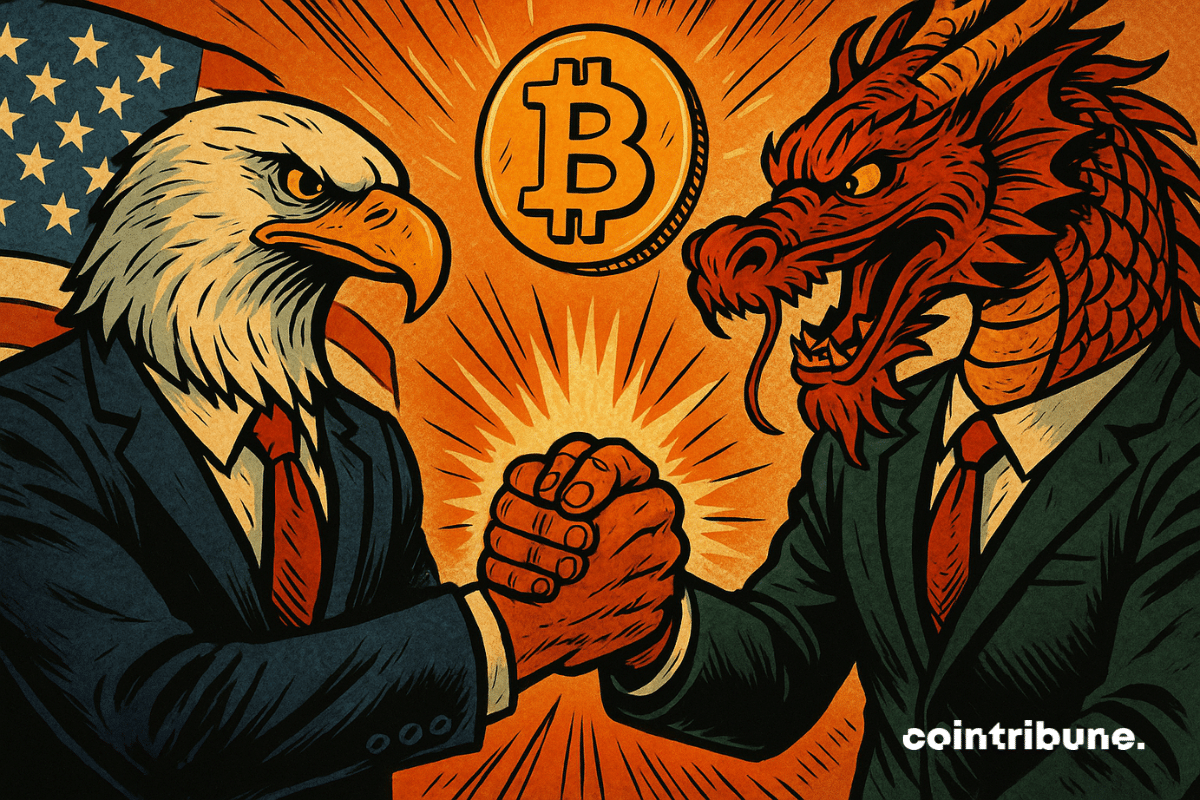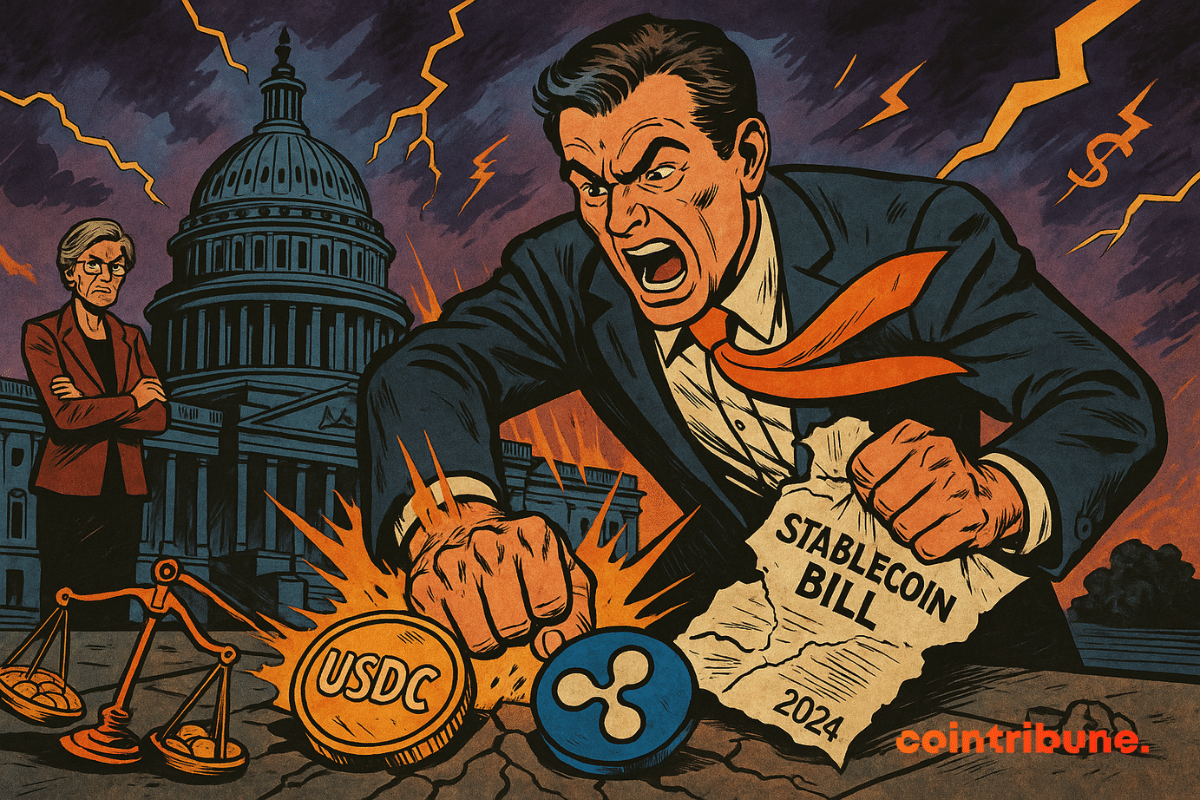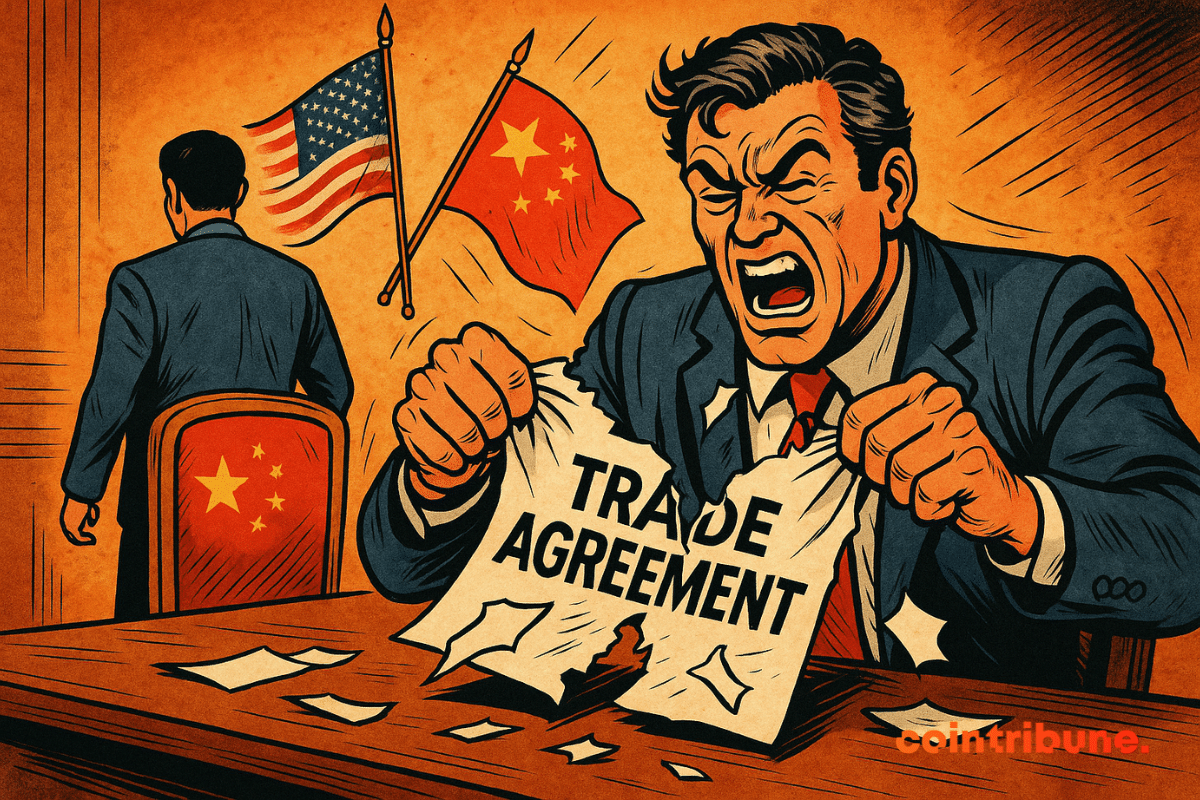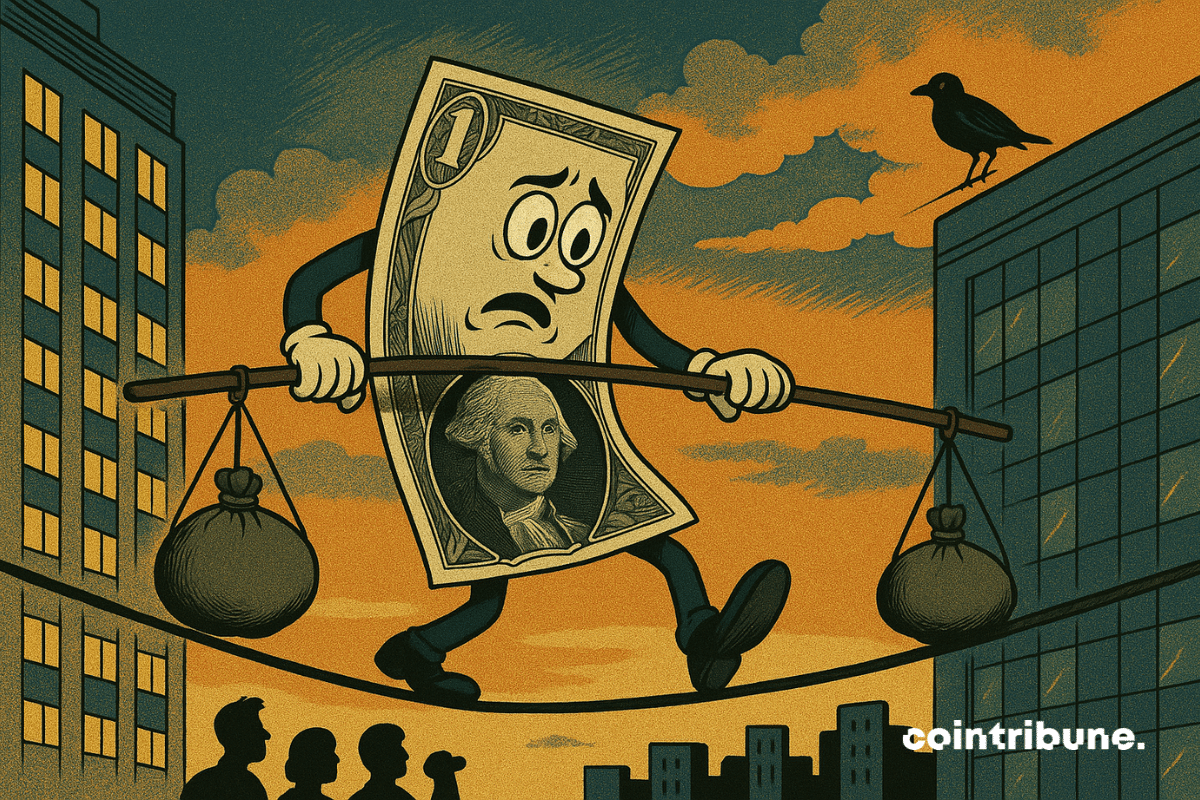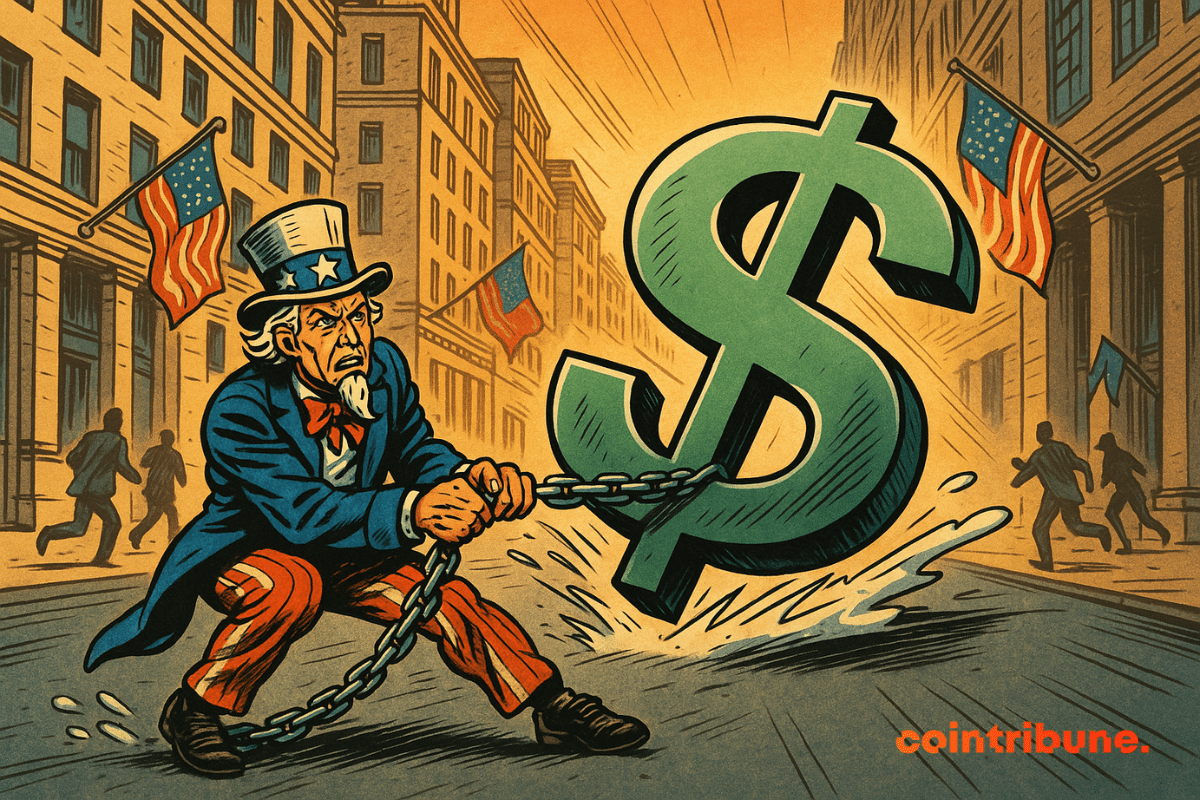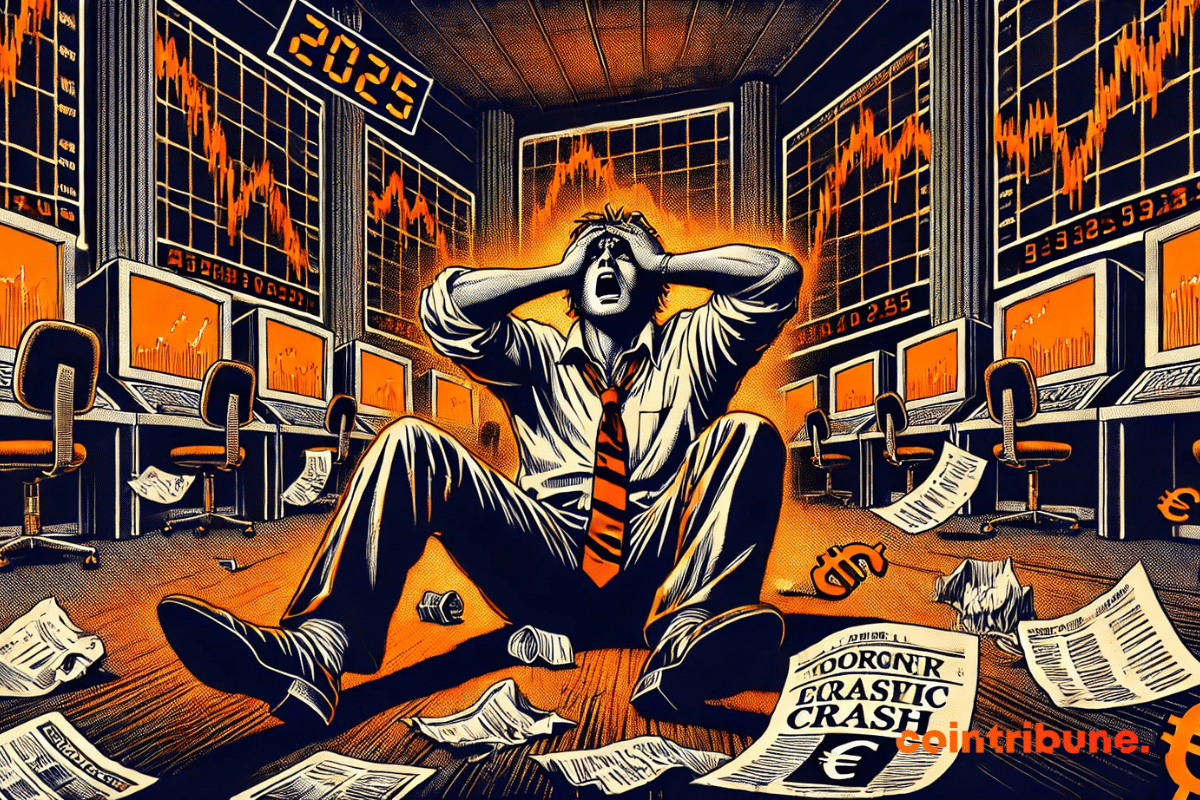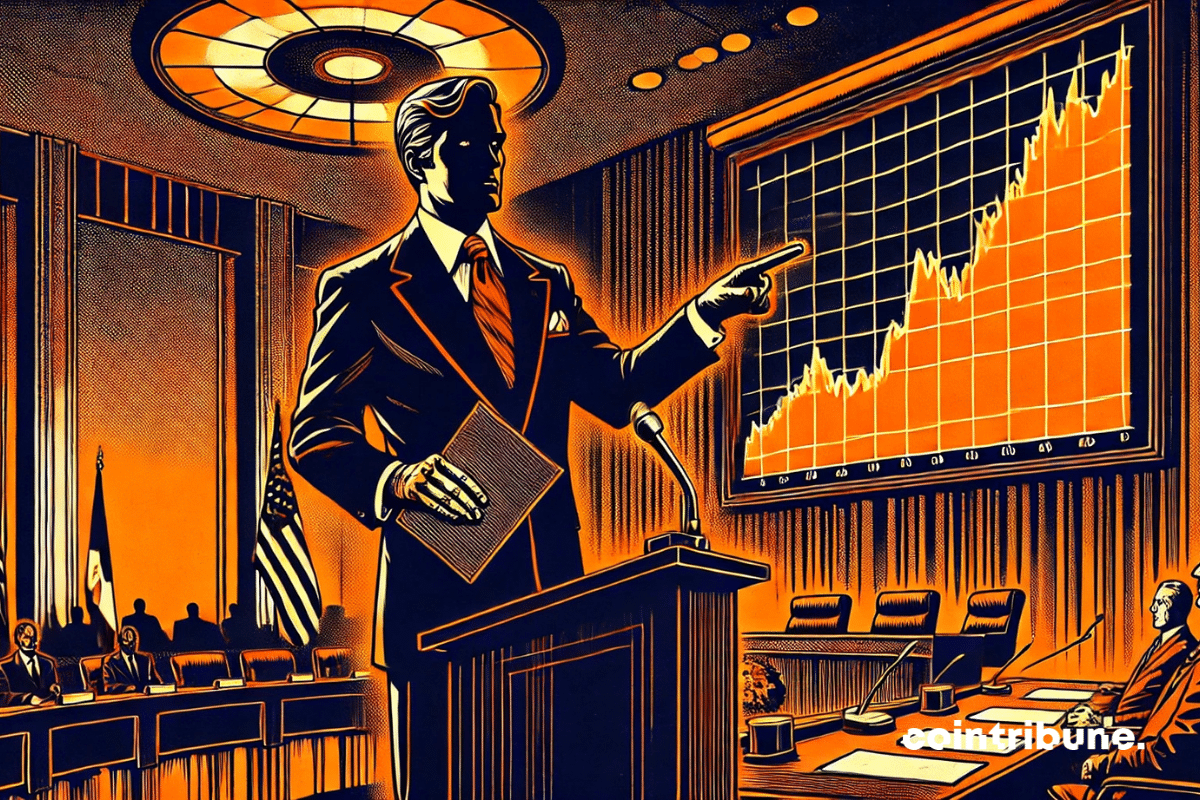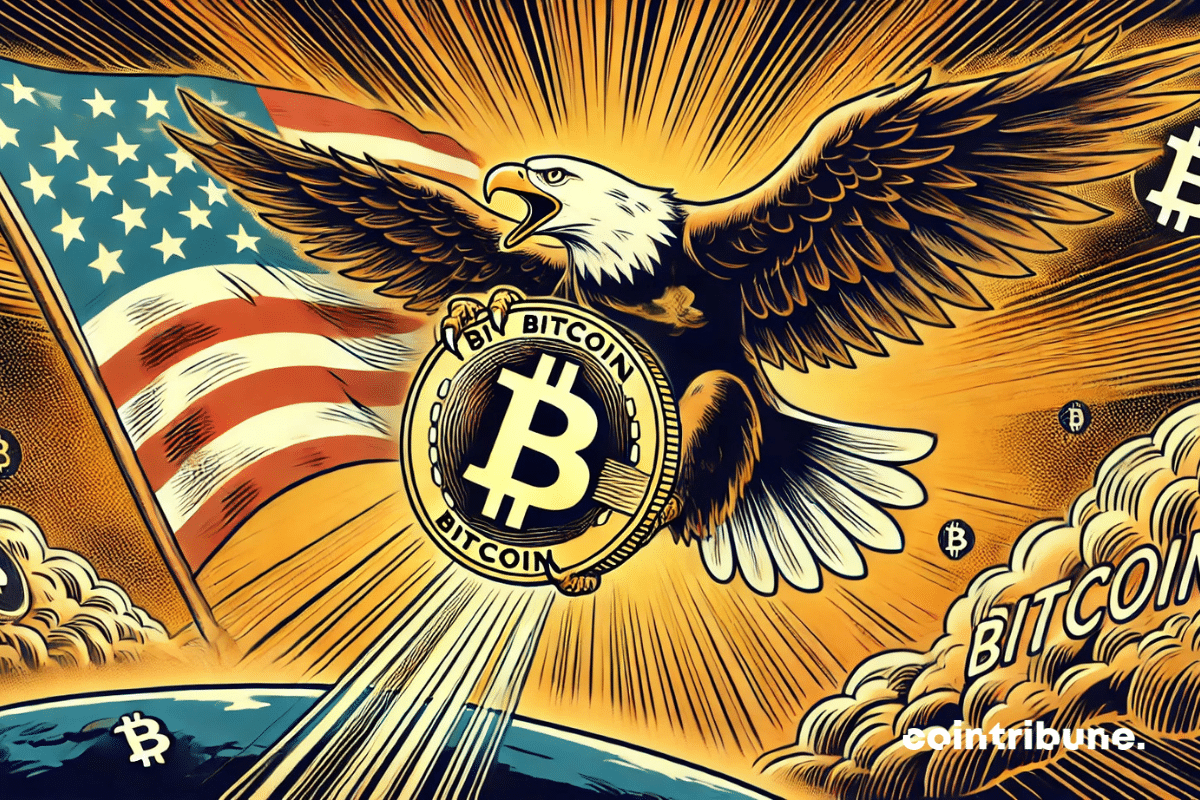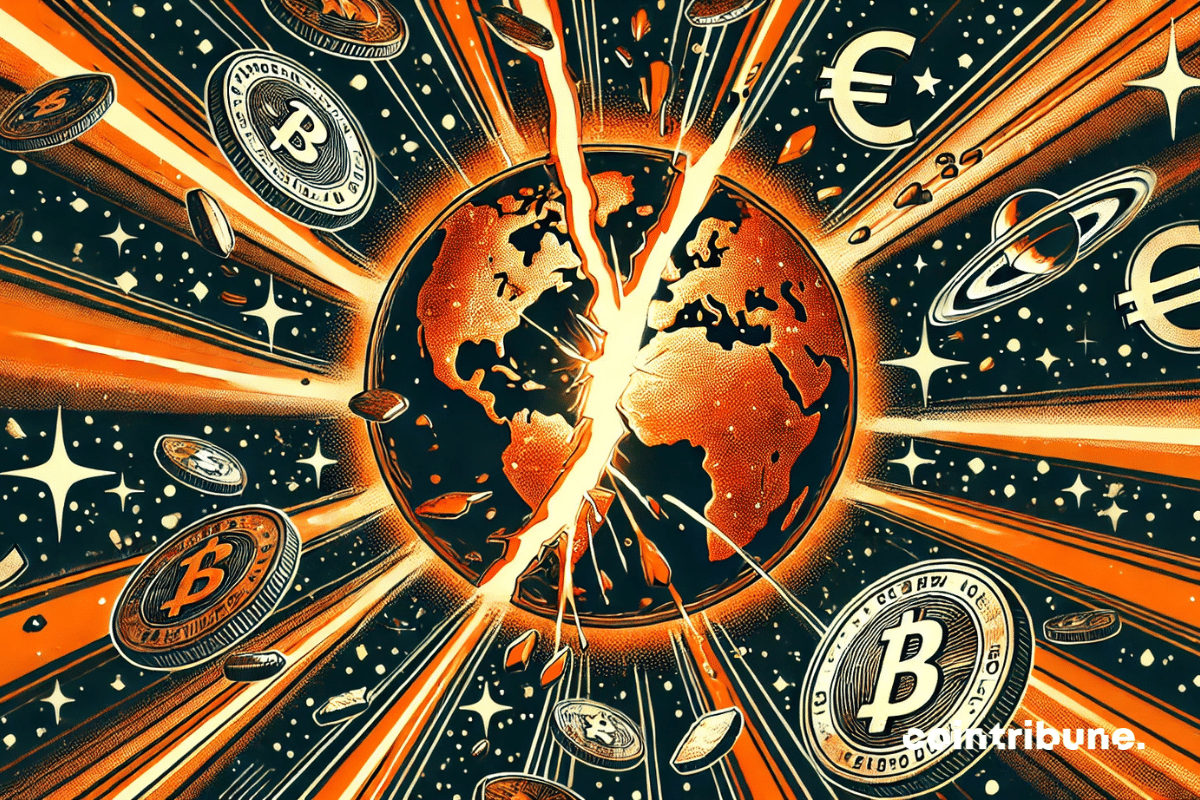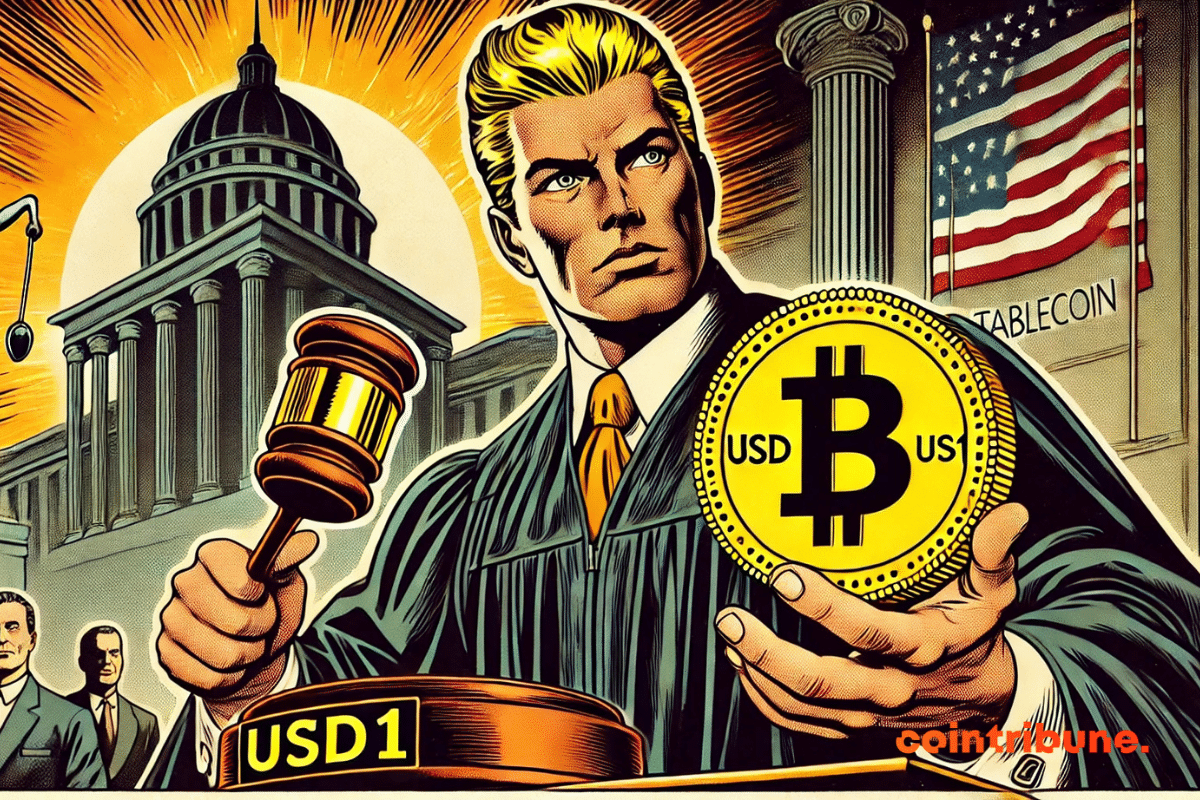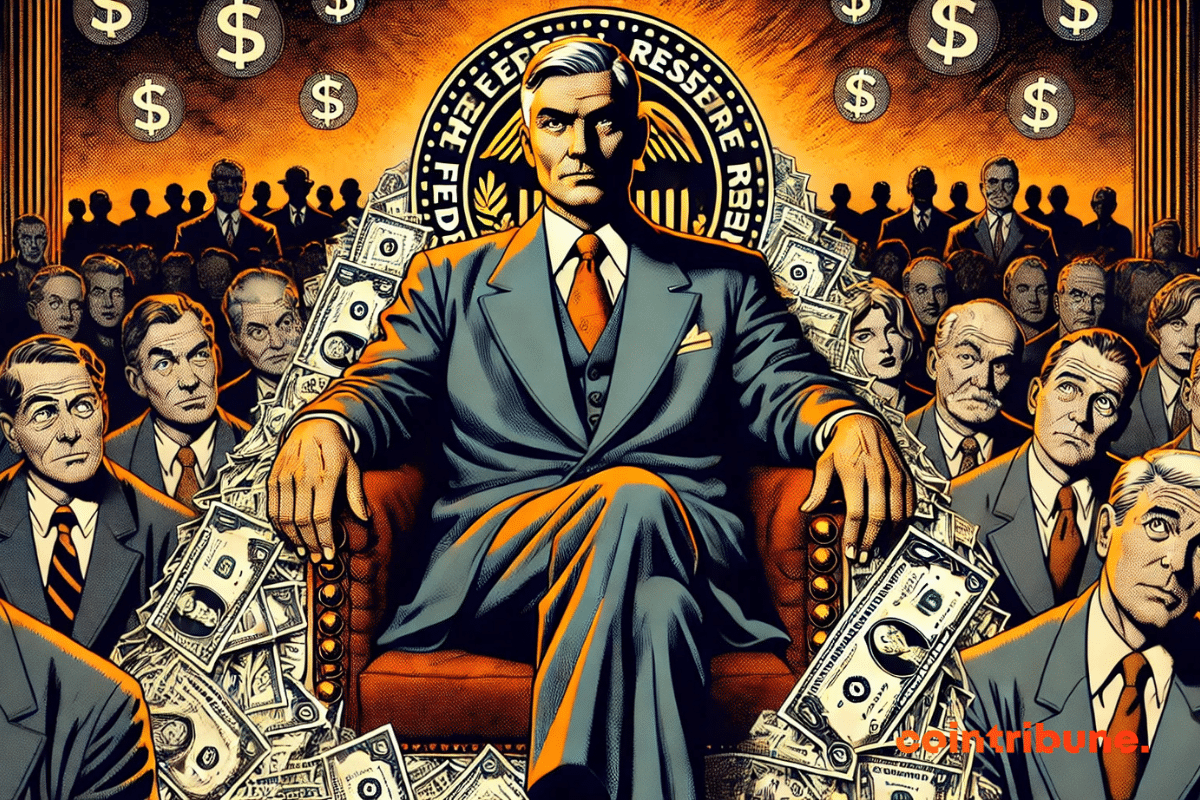Pay the national debt with a simple click on Venmo and PayPal: an absurd idea? Not for the U.S. Treasury, which is now allowing citizens to voluntarily contribute to the $36.7 trillion federal debt via PayPal and Venmo. Integrated into the Pay.gov platform, this unexpected measure combines consumer technology and macroeconomic management in a gesture that is symbolically significant but heavy with meaning.
United States of America
Donald Trump's announcement of 10% tariffs on BRICS countries reignites a strategic debate: are the United States risking, in their bid to defend their leadership, to accelerate de-dollarization? Behind this commercial offensive lies a deeper rift, where emerging powers seek to break away from the dominance of the greenback. As geo-economic tensions intensify, the question arises: is Washington not hastening the questioning of the monetary order it strives to preserve?
On the eve of July 4th, the U.S. Congress passed one of the most radical budget texts of the modern era. Championed by Donald Trump, this law reshapes America's economic priorities with massive tax cuts, social spending reductions, and a sharply rising debt. The vote, secured despite Republican fractures, marks a strategic turning point in the post-Biden era. More than just a budget, it is a political declaration that reshuffles the cards of power and reignites ideological tensions in Washington.
On June 17, the U.S. Senate passed the GENIUS Act, short for Guiding and Establishing National Innovation for U.S. Stablecoins Act, by a 68-30 bipartisan vote. If passed by the House and signed by the President, the bill would introduce the first comprehensive federal framework for regulating stablecoins in the United States.
The U.S. is facing a serious financial challenge. The national debt is now over $36 trillion, and rising interest rates are making it more expensive to borrow money. Much of the debt that was issued during the COVID-19 era is about to roll over, meaning it needs to be refinanced at today’s much higher rates.
When Trump insults, Waller anticipates, Powell temporizes and the economy stalls: who will win this strange dance of rates orchestrated between inflation, unemployment, and a monetary nerve war?
While Trump buries the digital dollar, Beijing is setting up its own on all continents. One click, one yuan, and finance trembles. The United States watches... gritting its teeth.
Military tensions in the Middle East are entering a critical phase. While Israel intensifies its strikes against Iran, prediction markets are going wild. The likelihood of a U.S. strike is reaching unprecedented levels. This increase in volatility fuels fears of a regional conflagration, closely monitored by investors, particularly in the crypto ecosystem.
As Washington and Beijing reopen a diplomatic channel in London, tensions over rare earths and semiconductors threaten the global balance. In the face of the Chinese delegation, Washington demonstrates its firmness. Donald Trump, true to his style, sets the tone: "China is not easy." Behind this statement lies a reality: neither side seems willing to yield on such strategic and explosive issues.
Fed meeting June 2025: inflation, unemployment, trade tensions... Discover how these crucial issues could disrupt interest rates and why some are already betting on bitcoin. Don't miss out!
A phone call, a truce? Trump puts away the customs missiles. The European economy is breathing, but for how long? Ursula whispers, Donald retreats. Suspense is high until July.
The American Congress recently approved the "Big, Beautiful Bill," Donald Trump's budget proposal, hailed as a strong resurgence of Republican economic policy. However, for Peter Schiff, this text marks a dramatic turning point. The economist sees it as a destructive mechanism that prepares for the inevitable downfall of the dollar and an unprecedented monetary shock.
Beijing is picking Uncle Sam's pockets, offloading its Treasury bonds, and whispering to the global economy: "I love you... me neither."
For a long time perceived as followers, the BRICS are now at the forefront of global growth. According to the latest forecasts from the IMF, these emerging powers will show an economic momentum in 2025 that is significantly higher than that of the United States. This quantitative shift is becoming strategic: the rise of the BRICS is no longer a trend; it is a fact. Their collective performance is redefining the balance of power and necessitating a re-examination of geo-economic equilibria.
Arizona Governor Katie Hobbs vetoed two crypto-related bills due to concerns over market volatility while approving a law to regulate crypto ATMs, setting limits on transactions and requiring fraud protections.
The U.S. and China agree to pause tariffs for 90 days, boosting crypto market optimism with Bitcoin and others seeing strong gains.
Ripple’s Chief Legal Officer, Stuart Alderoty, has criticized Elizabeth Warren, a United States Senator representing Massachusetts, for opposing key legislation aimed at regulating stablecoins in the United States.
China hoped to restore its economic reputation through conciliatory gestures towards the United States. Alas, despite a partial reduction in tariffs, the outlook remains bleak. The Chinese economy wavers, trapped by its own inertia and a frigid global environment.
The dollar has slowed down, but global markets are holding their breath. After three weeks of rising, the greenback is losing ground, driven by a more robust employment report than expected. However, tensions persist: a resilient growth, stagnant rates, and ongoing tariff uncertainties. Cryptos are not exempt from this monetary ballet. For crypto traders, every fluctuation of the dollar redraws the risk map, shifts the boundary of volatility, and reshapes liquidity expectations.
The American economy, that giant which once seemed untamable, today wobbles on a tightrope, caught between heightened trade tensions and a loss of domestic confidence. While some spoke of a mere gust of wind, the storm could very well be of unexpected violence.
In April 2025, the International Monetary Fund (IMF) darkened the economic outlook for the United States with a brutal revision: projected growth at 1.8%, down from the initially expected 2.7%. This turnaround, the most significant since the 2008 crisis, is not just a technical adjustment. It reflects a confluence of risks – trade wars, persistent inflation, a drop in consumption – that threatens to reshape the global economic balance. Behind these numbers, an unyielding observation: recent political decisions have triggered a shockwave whose aftershocks could last.
Jerome Powell's words have rarely sounded so heavy. Faced with a weakened economy and renewed trade tensions, the Fed chairman warns: new tariffs could plunge the United States into a zone of turbulence. Growth under pressure, inflation lurking, political uncertainties: the Federal Reserve must now contend with increasingly contradictory variables, risking losing control over the country's economic balance.
If the United States bought 1 million BTC, the price of bitcoin could reach 1 million dollars. A strategic reserve that would disrupt the global economy and reinvent financial assets.
Billionaire Ray Dalio warns that the international order is about to change at the expense of U.S. monetary hegemony. Bitcoin is lurking.
The dominance of the US dollar in international trade and global reserves has never been so challenged. Indeed, Deutsche Bank is sounding the alarm on a growing phenomenon: dedollarization among the allies of the United States. In the face of geopolitical tensions and financial sanctions, several nations are seeking to reduce their dependence on the greenback. If this trend accelerates, the impact could be considerable, drastically altering the global monetary balance and redefining the power dynamics within the international financial system.
Imagine a president, builder of skyscrapers and scandals, minting money at will based on the laws he writes. The USD1 is not just a stablecoin; it is the gateway to finance without safety nets.
Powell, the guardian of the threshold, shapes the moment. Frozen rates, blurred hopes. The economy wavers, suspended between the fire of inflation and the ice of slowdown. The markets shiver.
XRP, this rebellious insurgent, rises from the ashes while Ethereum stumbles. The crypto-sphere holds its breath: the established order wavers, and the throne of altcoins threatens to change hands.
Popular in words, forgotten in actions: bitcoin fascinates but does not convince. 4% of the earth's population believes in it, the others watch, perplexed, this digital gold without bars.
A dried-up river of euros, a shaken financial fortress: the Bundesbank wavers, its gold evaporates, while Merz inherits a throne without treasure, a kingdom in doubt.
